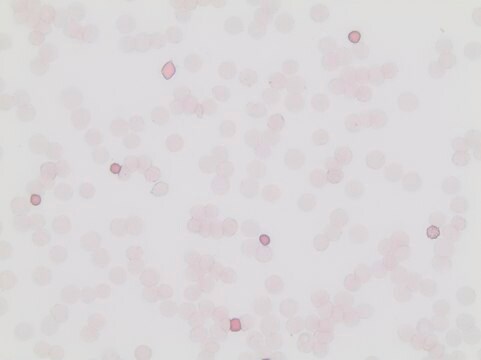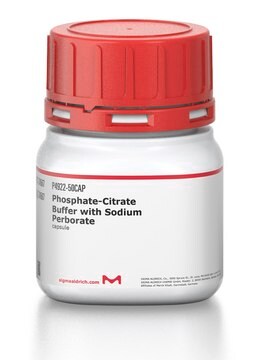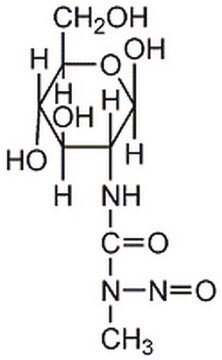C2488
Citrate Buffer Solution, 0.09 M
Synonym(s):
Citric Acid Buffer Solution
About This Item
Recommended Products
description
Contains 1% chloroform
pH 4.8 at 25 °C.
Quality Level
form
solution
concentration
0.09 M
pH
4.8 (25 °C)
application(s)
diagnostic assay manufacturing
storage temp.
2-8°C
Related Categories
General description
Application
Other Notes
Signal Word
Warning
Hazard Statements
Precautionary Statements
Hazard Classifications
Carc. 2 - STOT RE 2 Oral
Target Organs
Liver,Kidney
Storage Class Code
12 - Non Combustible Liquids
WGK
WGK 2
Flash Point(F)
Not applicable
Flash Point(C)
Not applicable
Personal Protective Equipment
Regulatory Listings
Regulatory Listings are mainly provided for chemical products. Only limited information can be provided here for non-chemical products. No entry means none of the components are listed. It is the user’s obligation to ensure the safe and legal use of the product.
PRTR
Class I Designated Chemical Substances
ISHL Indicated Name
Substances Subject to be Indicated Names
ISHL Notified Names
Substances Subject to be Notified Names
JAN Code
C2488-500ML:4548174011614
C2488-VAR:
C2488-100ML-PW:
C2488PROC:
C2488-BULK:
C2488-PH:
C2488-500ML-PW:
C2488-100ML:4548174011607
Choose from one of the most recent versions:
Certificates of Analysis (COA)
Don't see the Right Version?
If you require a particular version, you can look up a specific certificate by the Lot or Batch number.
Already Own This Product?
Find documentation for the products that you have recently purchased in the Document Library.
Customers Also Viewed
Our team of scientists has experience in all areas of research including Life Science, Material Science, Chemical Synthesis, Chromatography, Analytical and many others.
Contact Technical Service











